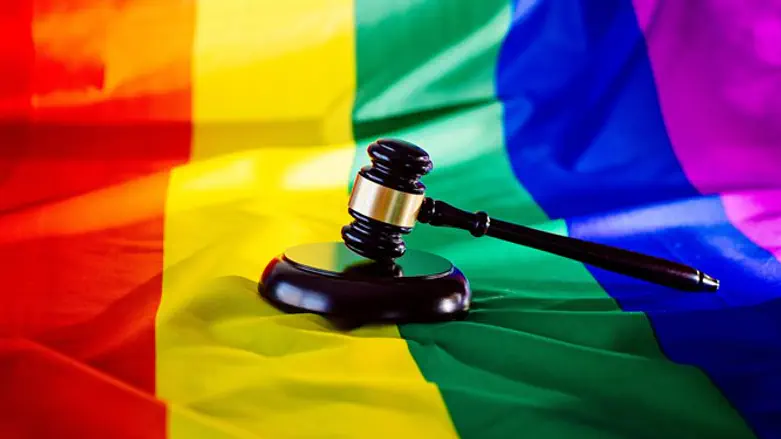
On Thursday, the LGBT community is holding its annual Jerusalem Pride Parade, at the start of “Pride Month.” As usual, the parade incites strong opinion on both sides of the LGBT question, including the perennial debate over whether such inclinations can be changed.
Yaron (not his real name) is today married and the father of five children, something he doesn’t take for granted as, at one point in his life, he did not feel any attraction for women and only after seeking psychological counseling did he turn his life around.
“Going back around 20 years, I was 20 years old and learning in yeshiva,” he relates. “I started to feel like I was attracted to other men rather than to women which placed me in a terrible position of conflict. I didn’t want to feel that way – I come from a religious home, and I wanted to build a family like all my friends. I was in a great amount of distress and also fear in case anyone found out.
“I tried all sorts of things,” he continues, “including psychological treatment. The main focus was on building my connection with myself. I had very low self-esteem and big self-confidence issues, and we worked on that, on finding my place and feeling good about myself as myself. I tried to figure out how I was feeling, where those feelings were coming from, and what I thought I wanted to gain from such relationships, and gradually the feelings of attraction for other males started to recede and parallel to that process, I started to feel attracted to women instead.”
It was the Eitzat Nefesh organization that came to Yaron’s aid. “I found them via a support line,” he says. “They in turn connected me with a certain program which deals with these issues, and through that program I found a psychologist.”
Yaron stresses that his wife knows about this part of his history – “My wife knows everything. I knew that I wanted to tell her, before we got married. I told her that I’d been through a psychological process and that it had really changed me. I didn’t want there to be this secret between us.”
Yaron notes that in the last 20 years, attitudes to LGBT issues have changed a lot. “If I’d been going through that process now instead of 20 years ago, I don’t know if I would have had the courage and determination to stick it out through such a psychological process – I don’t even know if I would have tried at all,” he says. “And I wouldn’t have had the family I have today.”
Addressing the current debate over what is usually termed “conversion therapy,” Yaron says that while he can understand the doubts of some, the methods used are not usually anything people would find intrinsically objectionable. “At one point, I went to see a certain psychologist, and his way of approaching things seemed so artificial to me that I knew it wasn’t going to help. But most psychologists don’t work like that,” he stresses. “And I personally object to people calling this ‘conversion therapy,’ because that implies that a person is being forced to change into something that he’s not and doesn’t want to be – and that’s not the case.”
Yaron also emphasizes that he is far from the only person to have gone through such a process. “Along the way, I met up with many others going through something similar,” he says. “People who started out the way I did, and today they are married with children.” Yaron and several of his friends have set up a website called “Choosing Oneself,” in order to give each other support and share their stories and knowledge.
“Even within the scientific community there are many expert opinions that homosexual tendencies can change over time,” he says. “Feeling a certain way is not a person’s unalterable destiny. Sometimes, because the issues are misrepresented, people get pushed in the direction of the LGBT world when if the issues were reframed, they would choose an entirely different path.”
“Even within the LGBT community there are plenty of people who don’t want that kind of lifestyle but feel trapped in it,” he adds. “They feel trapped because people present the issue as something that nothing can be done about. But everyone has the freedom to choose.”